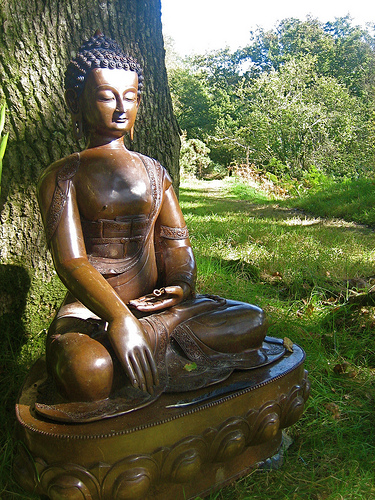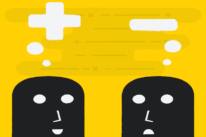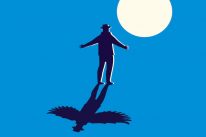“Fear: False Evidence Appearing Real.” -Unknown
Sometimes we feel certain that we know exactly what we’re seeing. If you’re anything like me, odds are you’ve had plenty of opportunities to recognize your perception is often off.
A friend of mine once told me a story about a near-confrontation in the subway. She saw another woman dressed in what one might call Gothic clothing. Although my friend’s look was more conservative, she loved the other woman’s funky-looking shirt.
Unintentionally, she stared at it for a while, admiring the unique cut and wondering if she could pull that look off. When they both got off the train, the other woman confronted her, yelling “What you looking at?”
She assumed my friend was judging her, and then her fear turned into anger–completely misguided, aggressive anger. She looked incredulous when my friend told her she admired her shirt, but it was exactly what she’d been thinking.
There’s a primal part of us that instinctively feels scared when we believe we recognize a threat. If we’re not self-aware, and if we don’t learn to challenge ourselves, that fear can manifest in all kinds of limiting emotions and actions.
It can keep us from getting to know people who could be kindred spirits, despite an appearance that might suggest otherwise. It can prevent us from taking smart risks that could help us reach our dreams. It can even bind us in depression and anxiety, convincing us the world is full of suffering, when oftentimes, our interpretations create it.
Of course there’s another side to this coin: sometimes evidence is real. Sometimes the person staring at you legitimately is judging you. Sometimes the things we fear might happen will. But most times we’ll recognize that the worst that could possibly happen isn’t really that bad. Most of the “threats” we face are really just inconvenient or unideal.
Today if you feel limited by your fear, remember: You can assume the worst and allow that to keep you paralyzed, or you can decide to stop wasting your energy analyzing evidence, and focus instead of creating possibilities.

Photo by Akuppa
About Lori Deschene
Lori Deschene is the founder of Tiny Buddha. She started the site after struggling with depression, bulimia, c-PTSD, and toxic shame so she could recycle her former pain into something useful and inspire others to do the same. You can find her books, including Tiny Buddha’s Gratitude Journal and Tiny Buddha’s Worry Journal, here and learn more about her eCourse, Recreate Your Life Story, if you’re ready to transform your life and become the person you want to be.
- Web |
- More Posts













 Though I run this site, it is not mine. It's ours. It's not about me. It's about us. Your stories and your wisdom are just as meaningful as mine.
Though I run this site, it is not mine. It's ours. It's not about me. It's about us. Your stories and your wisdom are just as meaningful as mine. 